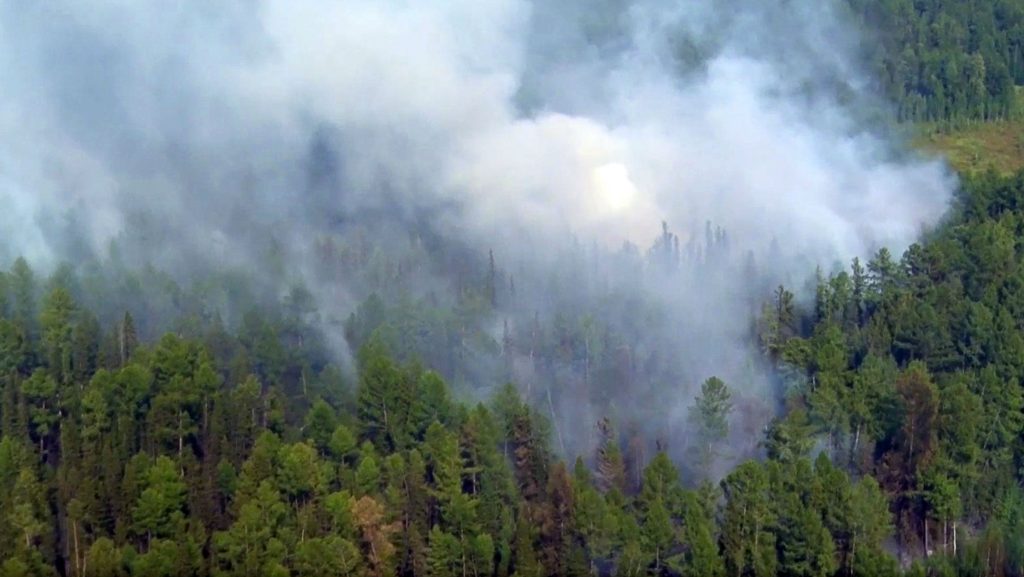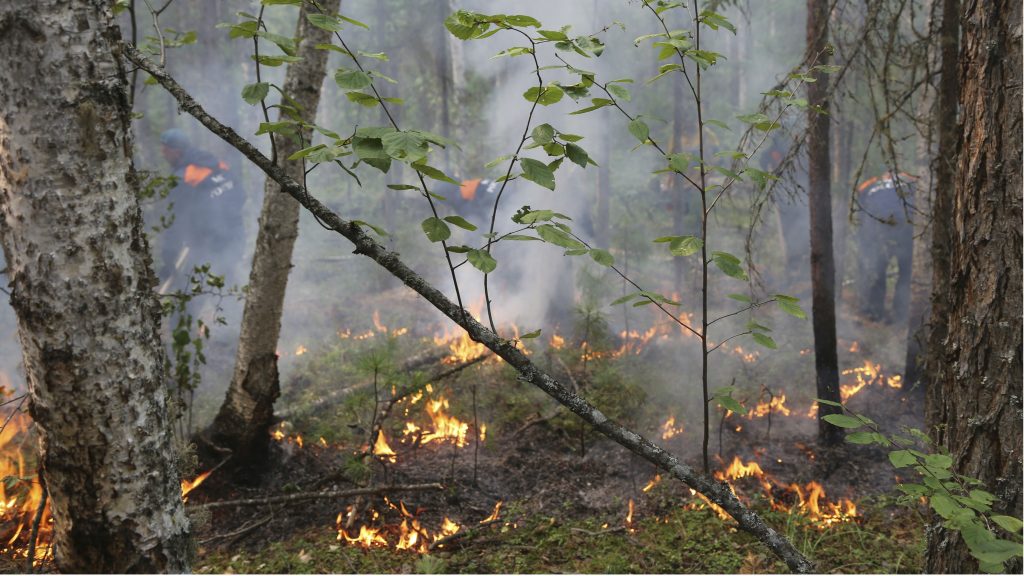Greenpeace Russia calls for more resources to fight Siberian wildfires

Greenpeace Russia is calling for more resources to fight Siberian wildfires, saying the smoke is having consequences everywhere from big cities to small settlements.
“The Russian branch of Greenpeace requires the authorities to send additional forces to fight fire, revise control zones so as not to repeat the disaster, and also tell the truth about the smoke and help people survive it,” the environmental organization said in statement on Thursday.
A petition started by the organization demanding more resources be put into controlling and extinguishing the fires now has over 386,000 signatures.
Fires are a natural part of the boreal forest life cycle but the exceptionally hot and dry weather in Siberia since June has boosted the intensity and duration of the blazes.
Tweet from the Copernicus Emergency Management Service, an EU programme based on satellite Earth Observation data:
#Siberia #wildfires
This animation of #Sentinel3 🇪🇺🛰️images from 15 July to 7 August gives a good idea of the huge amounts of smoke (and CO2, and formaldehyde, etc.) generated by the blazes…#savesiberiaforests #потушитепожарывсибириin pic.twitter.com/aDDp3IdFm— Copernicus EMS (@CopernicusEMS) August 7, 2019
Weeks of uncertainty
In an update on Thursday, Russia’s aerial forest protection service said there were now 2,424,396 hectares of wildfire area where firefighting efforts have been stopped saying there were no threats to either people or infrastructure.
“The projected costs of extinguishing them exceed the projected damage that they may cause,” they said in a a statement.

Elsewhere, firefighting efforts continue on 179,179 hectares of wildfire areas in Russia, including in the Republic of Sakha (Yakutia) and Krasnoyarsk Territory, involving some 3,864 people, authorities say.
Write to Eilís Quinn at eilis.quinn(at)cbc.ca
Related stories from around the North:
Canada: 2019 Arctic wildfire season ‘unprecedented’ say experts, Eye on the Actic
Finland: Arctic Council experts tackle black carbon risk posed by wildfires, Eye on the Arctic
Iceland: Better wildfire & agriculture management among recommendations from Arctic Council black carbon expert group, Eye on the Arctic
Norway: Arctic summer 2019: record heat, dramatic ice loss and raging wildfires, The Independent Barents Observer
Russia: Nearly 3,000 people, 50 aircraft mobilized to fight wildfires in Russia, Eye on the Arctic
Sweden: Study on Swedish wildfires shows how to make forests rise from the ashes, Radio Sweden
United States: Wildfire smoke brings more respiratory complaints in Anchorage, Alaska, Alaska Public Media



